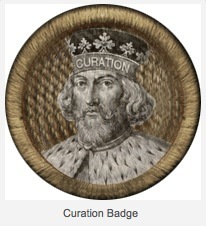Robin Good: To be "in the know" is today often mistaken with being up-to-date. That is, having browsed and read what mainstream and social media have been serving lately.
But what is more important? Knowing the latest gossip and the hot issues on the Silicon Valley tech table or being able to understand in depth a topic and being abe to articulate a personal position relative to it?
It is on these matters that Andrew Battista, Assistant Professor, Information Literacy and Reference Librarian at the University of Montevallo in Alabama has wanted to focus the attention of his curation students, by writing an interesting article.
In it, he provides a short 1':53" short video (not visible to EU-based viewers due to rights-restrictions) extracted from a commercial TV series. In the clip, friends at a bar discuss over who is most in the know by referencing a bunch of articles and stories they have recently read.
Here Prof. Battista insightful comments: "What’s valued today is our ability to recognize surface-level bits of knowledge, and what we’ve lost, perhaps, is the ability to make, deep, meaningful connections between the things we read and the complex problems we face in the world.
Of course, it’s simply not realistic to expect that one person could possibly keep pace with all of the content in the publications Fred and Carrie list, which are but a sliver of all of the great journalism, blog writing, podcasts, news, and information that gets churned out every day.
Perhaps what is really being parodied here is the mistaken notion that one has to stay current with everything in order to come across as smart to one’s friends.
It’s just not possible, and we know that in this age of a swirling vortex of information, we have to find the right balance between knowing what the general buzz is and latching on to some information that we can use deeply.
This, in a nutshell, is the central challenge of information literacy, and I believe that curation, or the process of making decisions about what is good and what isn’t, is an integral skill for all citizens of the digital age that can help us become more information literate."
Recommended. 8/10
Full article + video (available only to US viewers): http://www.curationculture.org/archives/251#more-251
(Image credit: Literacy "Curation" Badge from the course taught by Prof. Battista - see CurationCulture.org)



 Your new post is loading...
Your new post is loading...







